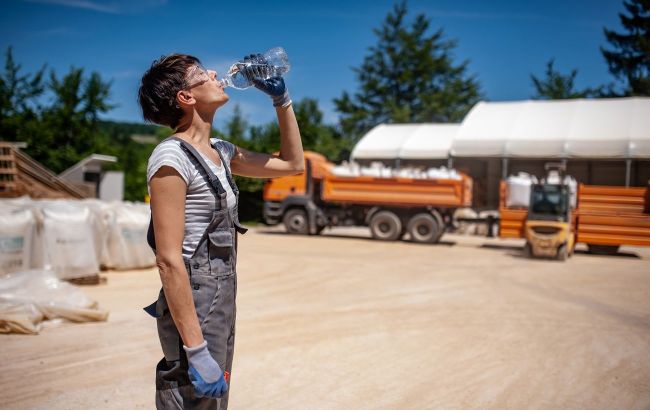How many hours to work during abnormal heat wave - State Labor Service
 Illustrative photo (Getty Images)
Illustrative photo (Getty Images)
For over a week, many countries in Europe have been experiencing abnormal heat. The upper limit for working temperatures is no more than 28 degrees Celsius, according to the State Labor Service.
Working temperature guidelines
Permissible temperature levels vary for different types of work. However, the upper limit for temperatures at permanent workplaces (where workers spend more than half of their working time or at least two consecutive hours) is 28 degrees Celsius.
If work needs to be performed outdoors or on open sites, its duration should not exceed 4-5 hours per shift.
Moreover, break durations should be at least 10% of working time for every two degrees of excess. During these breaks, employees should be in rooms no cooler than 25 degrees.
This is because sharp temperature changes significantly increase the risk of heart attacks.
If the outside temperature exceeds 35 degrees, work duration should be 15-20 minutes followed by at least 10 minutes of rest in cooled rooms.
The permissible workload duration per shift for those using special clothing to protect against heat radiation should not exceed 4-5 hours, while without such clothing, it should be 1.5-2 hours.
If the temperature exceeds 37 degrees Celsius, such work is considered dangerous. Employers are then advised to adjust the workday and shift work hours to the early morning and evening.
Protecting health during abnormal heat
To avoid dehydration, it is essential to maintain proper hydration. During physical work at temperatures above 30 degrees Celsius, it is recommended to drink at least half a liter of water per hour.
Additionally, work at heights in open areas is not allowed if the wind speed is 10 m/s or more and the air temperature is above 35 degrees. Urgent work at heights in more severe weather conditions (at other temperatures) is performed at the employer's discretion.
This material is for informational purposes only and should not be used for medical diagnosis or self-treatment. Our goal is to provide readers with accurate information about symptoms, causes, and methods of detecting diseases. RBС-Ukraine is not responsible for any diagnoses that readers may make based on materials from the resource. We do not recommend self-treatment and advise consulting a doctor in case of any health concerns.

